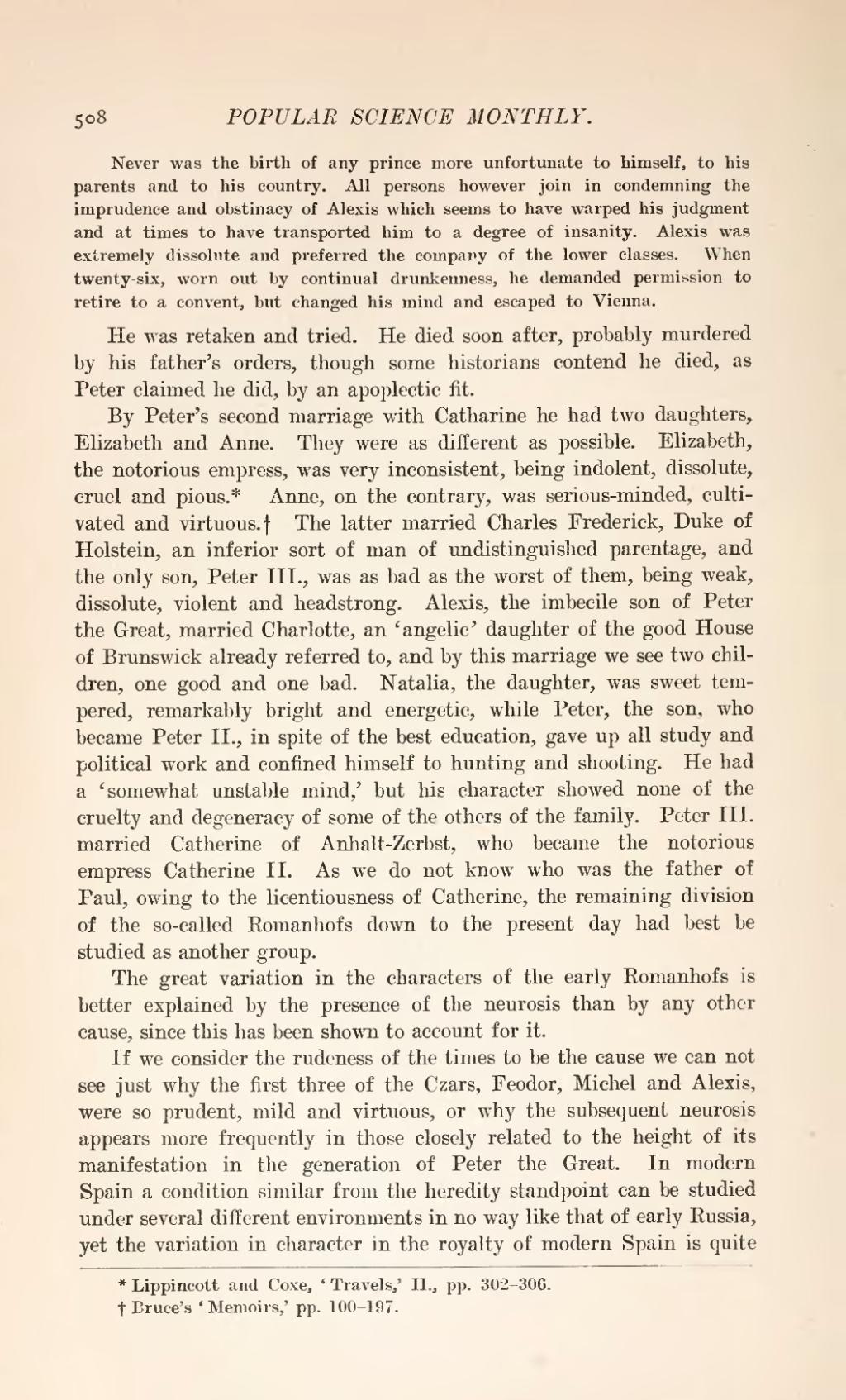He was retaken and tried. He died soon after, probably murdered by his father's orders, though some historians contend he died, as Peter claimed he did, by an apoplectic fit.
By Peter's second marriage with Catharine he had two daughters, Elizabeth and Anne. They were as different as possible. Elizabeth, the notorious empress, was very inconsistent, being indolent, dissolute, cruel and pious.[1] Anne, on the contrary, was serious-minded, cultivated and virtuous,[2] The latter married Charles Frederick, Duke of Holstein, an inferior sort of man of undistinguished parentage, and the only son, Peter III., was as bad as the worst of them, being weak, dissolute, violent and headstrong. Alexis, the imbecile son of Peter the Great, married Charlotte, an 'angelic' daughter of the good House of Brunswick already referred to, and by this marriage we see two children, one good and one bad. Natalia, the daughter, was sweet tempered, remarkably bright and energetic, while Peter, the son, who became Peter II., in spite of the best education, gave up all study and political work and confined himself to hunting and shooting. He had a 'somewhat unstable mind,' but his character showed none of the cruelty and degeneracy of some of the others of the family. Peter III. married Catherine of Anhalt-Zerbst, who became the notorious empress Catherine II. As we do not know who was the father of Paul, owing to the licentiousness of Catherine, the remaining division of the so-called Romanhofs down to the present day had best be studied as another group.
The great variation in the characters of the early Romanhofs is better explained by the presence of the neurosis than by any other cause, since this has been shown to account for it.
If we consider the rudeness of the times to be the cause we can not see just why the first three of the Czars, Feodor, Michel and Alexis, were so prudent, mild and virtuous, or why the subsequent neurosis appears more frequently in those closely related to the height of its manifestation in the generation of Peter the Great. In modern Spain a condition similar from the heredity standpoint can be studied under several different environments in no way like that of early Russia, yet the variation in character in the royalty of modern Spain is quite
